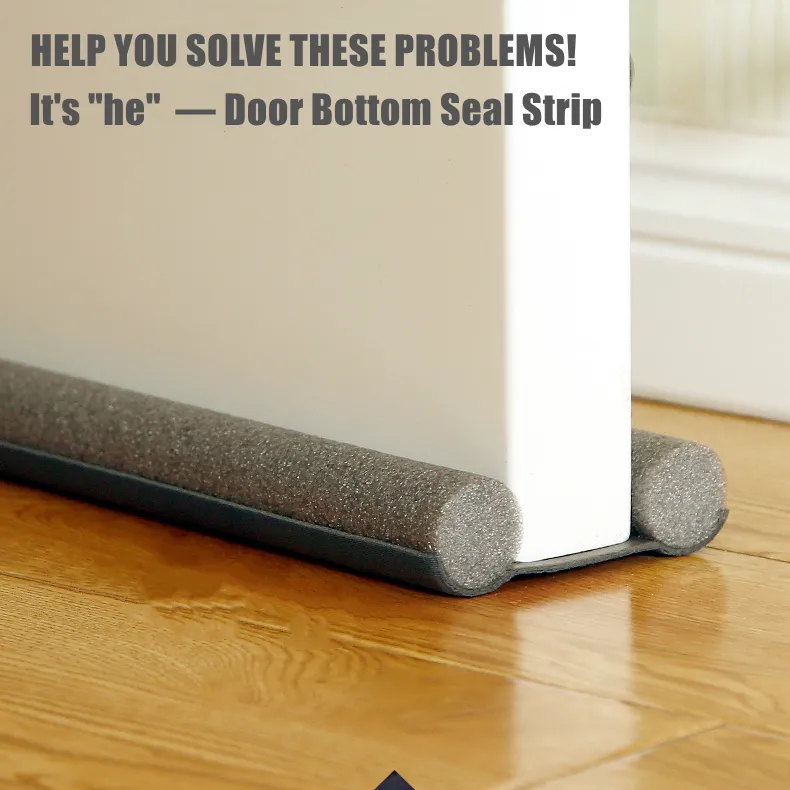Telephone: +8618730949119
E-mail: 1299343081@qq.com
1 月 . 20, 2025 03:54
Back to list
Edge Banding Tape Furniture Wood Board Cabinet Tab
Choosing the right metal garage door bottom seal is crucial in ensuring effective protection against weather elements, pests, and debris. As someone who has dealt with innumerable garage door maintenance and replacement scenarios, I can unmistakably highlight the indispensable role played by bottom seals in maintaining the integrity of your garage space.
A critical aspect of selecting the right seal is understanding the compatibility with your existing garage door design. Some seals work better with specific door materials and types—like roll-up versus swing-out designs—illustrating the importance of consulting with a garage door specialist or reading comprehensive product manuals before making a decision. In my professional capacity, I've witnessed countless issues arising from improper installation. An ill-fitted seal not only fails to perform its intended function but may also damage the garage door mechanism. Precision in trimming, alignment, and securing the seal is paramount, which is why I recommend relying on well-established brands and professional installation services to ensure a job well done. Furthermore, investing in high-quality materials can mitigate frequent replacements and repairs. Durable seals, resistant to wear and tear, provide long-term benefits and ultimately contribute to savings. Look for seals made from high-grade rubber or polyethylene, as these materials offer excellent resilience against environmental pressures and maintain flexibility over time. To foster trustworthiness, always choose products from reputable companies known for their consistency in quality. Many of these companies offer warranties and after-sales service, providing added security in your investment. Taking a proactive approach in the maintenance of the bottom seal can enhance effectiveness significantly. Regular inspections, cleaning, and timely replacement of worn-out seals maintain the overall functionality and extend the life of your garage door system. In conclusion, selecting the right metal garage door bottom seal involves a careful consideration of material composition, compatibility with your garage door, the specific external conditions you face, and a professional approach towards installation and maintenance. With the right choice, you ensure comprehensive protection, value for money, and peace of mind regarding the longevity and performance of your garage door.


A critical aspect of selecting the right seal is understanding the compatibility with your existing garage door design. Some seals work better with specific door materials and types—like roll-up versus swing-out designs—illustrating the importance of consulting with a garage door specialist or reading comprehensive product manuals before making a decision. In my professional capacity, I've witnessed countless issues arising from improper installation. An ill-fitted seal not only fails to perform its intended function but may also damage the garage door mechanism. Precision in trimming, alignment, and securing the seal is paramount, which is why I recommend relying on well-established brands and professional installation services to ensure a job well done. Furthermore, investing in high-quality materials can mitigate frequent replacements and repairs. Durable seals, resistant to wear and tear, provide long-term benefits and ultimately contribute to savings. Look for seals made from high-grade rubber or polyethylene, as these materials offer excellent resilience against environmental pressures and maintain flexibility over time. To foster trustworthiness, always choose products from reputable companies known for their consistency in quality. Many of these companies offer warranties and after-sales service, providing added security in your investment. Taking a proactive approach in the maintenance of the bottom seal can enhance effectiveness significantly. Regular inspections, cleaning, and timely replacement of worn-out seals maintain the overall functionality and extend the life of your garage door system. In conclusion, selecting the right metal garage door bottom seal involves a careful consideration of material composition, compatibility with your garage door, the specific external conditions you face, and a professional approach towards installation and maintenance. With the right choice, you ensure comprehensive protection, value for money, and peace of mind regarding the longevity and performance of your garage door.
Latest news
-
Silicone Seal Strip: The Ultimate Solution for Your Sealing NeedNewsNov.01,2024
-
Keep the Heat: The Importance of Seal for Oven DoorsNewsNov.01,2024
-
Essential Guide to Corner Protectors for Your FurnitureNewsNov.01,2024
-
Enhance Your Home with Silicone SolutionsNewsNov.01,2024
-
Efficient Maintenance of Melamine Sealing StripsNewsNov.01,2024
-
Comparison of Different Edge Sealing ProcessesNewsNov.01,2024
-
Types of Door Bottom Seal Strips and Their Best UsesNewsOct.25,2024